10 Best Cooking Oils
In today’s health-conscious world, the choice of cooking oil plays a pivotal role in our overall well-being. With a plethora of options available, selecting the right oil can be daunting. This comprehensive guide delves into the “10 Best Cooking Oils,” examining their health benefits, culinary uses, and scientific backing to help you make informed decisions in your kitchen.
10 Best Cooking Oils
| Cooking Oil | Type of Fat | Smoke Point (°C) | Key Nutrients | Best Uses |
|---|---|---|---|---|
| Olive Oil | MUFA | 160-240 | Polyphenols, Vitamin E | Sautéing, dressings |
| Avocado Oil | MUFA | 190-270 | Lutein, Vitamin E | High-heat cooking, frying |
| Rapeseed (Canola) Oil | MUFA, PUFA | 204-246 | Omega-3, Vitamin E | Baking, roasting |
| Ghee | Saturated | 232-250 | Butyrate, Vitamins A, E | Frying, sautéing |
| Coconut Oil | Saturated | 171-232 | MCTs, Lauric Acid | Baking, medium-heat cooking |
| Red Palm Oil | Saturated | 232 | Carotenoids, Vitamin E | Frying, stews |
| Sunflower Oil | PUFA | 107-230 | Vitamin E, Linoleic Acid | Baking, low-heat cooking |
| Sesame Oil | PUFA, MUFA | 177-210 | Sesamin, Vitamin E | Stir-frying, dressings |
| Peanut Oil | MUFA, PUFA | 160-230 | Vitamin E, Resveratrol | Deep-frying, sautéing |
| Grapeseed Oil | PUFA | 176-215 | Vitamin E, Polyphenols | Baking, sautéing |
Best Cooking Oils
1. Olive Oil
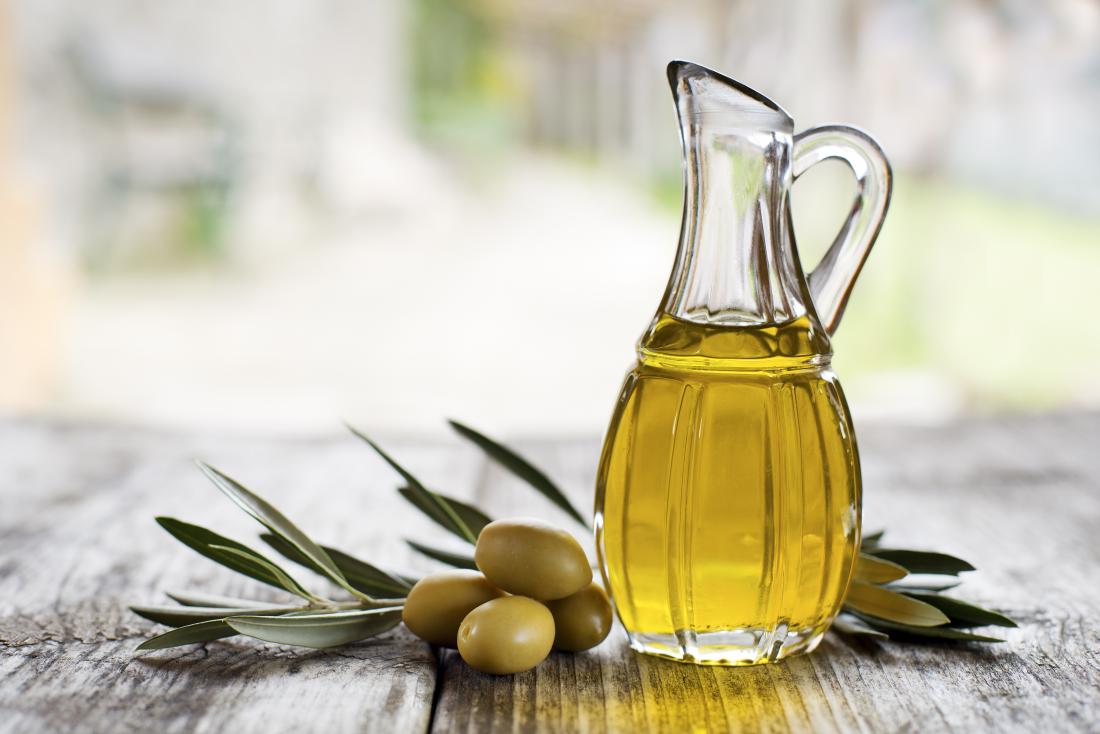
Overview:
Olive oil, particularly extra virgin olive oil (EVOO), is one of the healthiest oils available. It is a staple in Mediterranean diets and is known for its rich, robust flavor. Olive oil is predominantly made up of monounsaturated fats, which are considered heart-healthy fats. It also contains powerful antioxidants, such as polyphenols, that provide anti-inflammatory properties.
Health Benefits:
Olive oil is loaded with oleic acid, a type of monounsaturated fat that can help reduce inflammation. Regular consumption has been linked to a reduced risk of heart disease, lowering blood pressure, and improving cholesterol levels. Moreover, EVOO is rich in antioxidants that protect your body from oxidative stress and promote healthy aging.
Best Uses:
Olive oil is incredibly versatile. It’s perfect for drizzling over salads, making dressings, sautéing vegetables, or even baking. However, it’s best suited for low to medium-heat cooking as its smoke point is relatively low compared to other oils.
2. Avocado Oil
:max_bytes(150000):strip_icc()/avocado-oil-for-hairGettyImages-1305910678-58f6ec372b144c08aa370136a03dc8d0.jpg)
Overview:
Avocado oil is pressed from the flesh of avocados, making it a nutrient-dense oil that boasts a mild, buttery flavor. It’s high in monounsaturated fats, which make it a heart-healthy oil. The oil is also rich in lutein, an antioxidant that supports eye health.
Health Benefits:
Like olive oil, avocado oil is packed with healthy monounsaturated fats. These fats can help lower bad cholesterol (LDL) while raising good cholesterol (HDL). Additionally, avocado oil contains vitamin E and lutein, which are excellent for skin health and protecting your eyes from damage.
Best Uses:
With a high smoke point, avocado oil is great for high-heat cooking methods such as frying, grilling, or roasting. It can also be used in salad dressings and as a finishing oil for added richness.
3. Rapeseed (Canola) Oil
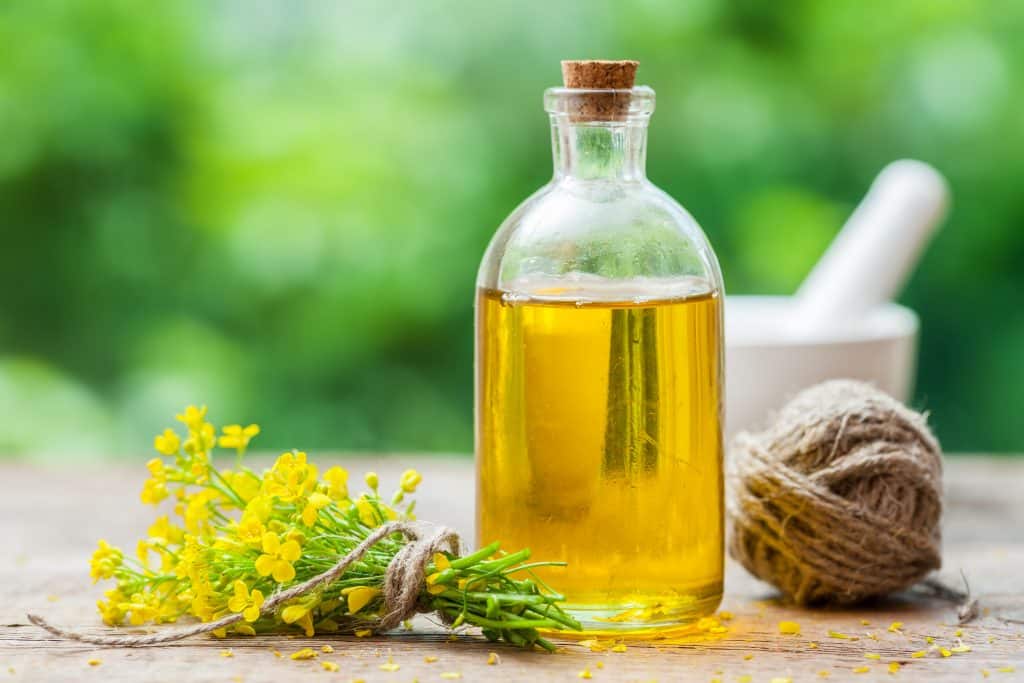
Overview:
Rapeseed oil, commonly known as canola oil, is extracted from the seeds of the canola plant. It has a light flavor and a high smoke point, making it one of the most versatile oils for cooking. It’s low in saturated fat and contains a favorable balance of omega-3 and omega-6 fatty acids.
Health Benefits:
Canola oil is a good source of omega-3 fatty acids, which are essential for heart health and can help reduce inflammation in the body. It’s also rich in vitamin E, an antioxidant that supports immune function and skin health.
Best Uses:
Rapeseed oil is suitable for a wide range of cooking methods, including frying, baking, grilling, and sautéing. It’s also a popular choice for making sauces, mayonnaise, and dressings.
4. Ghee
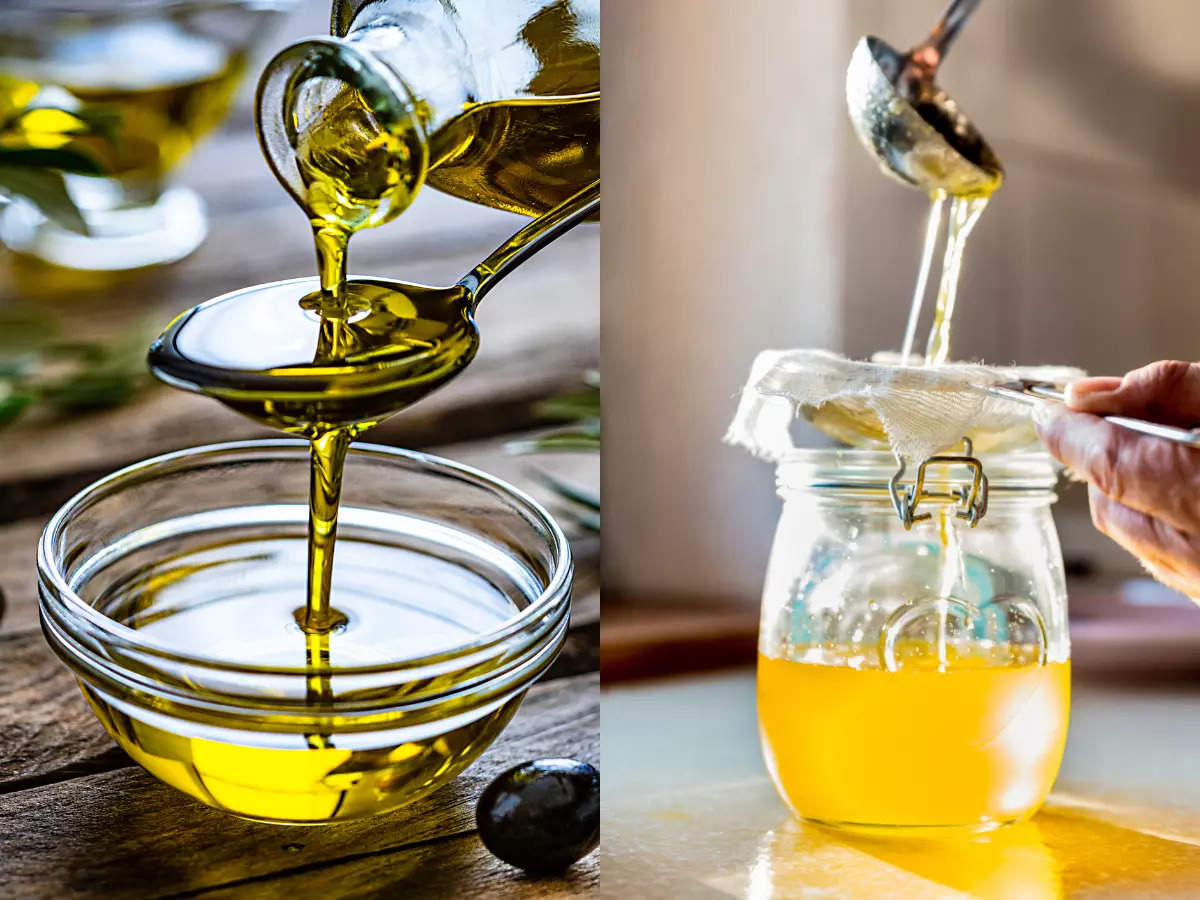
Overview:
Ghee is a clarified form of butter commonly used in Indian and Middle Eastern cuisines. It’s made by melting butter and removing the milk solids, resulting in a rich, golden oil that has a high smoke point. Ghee is known for its deep, nutty flavor and its health benefits.
Health Benefits:
Ghee is rich in butyrate, a short-chain fatty acid that supports gut health, reduces inflammation, and enhances brain function. It’s also free from lactose and casein, making it suitable for those with lactose intolerance. Ghee is also rich in vitamins A, E, and K, which support immune health and skin vitality.
Best Uses:
Ghee is ideal for high-heat cooking methods like frying, sautéing, and grilling. It’s also often used in traditional dishes and Indian cooking due to its aromatic flavor.
5. Coconut Oil

Overview:
Coconut oil is a tropical oil made from the flesh of coconuts. It is high in saturated fats, particularly medium-chain triglycerides (MCTs), which are easily digestible and provide a quick source of energy.
Health Benefits:
Coconut oil contains lauric acid, a type of MCT that has been shown to boost metabolism and support weight loss. It also has antimicrobial properties that can improve gut health and fight off harmful bacteria. Coconut oil may also improve brain function, particularly in individuals with Alzheimer’s disease.
Best Uses:
Coconut oil works well for medium-heat cooking, baking, and sautéing. Its distinct coconut flavor makes it ideal for tropical dishes, smoothies, and baked goods.
6. Red Palm Oil
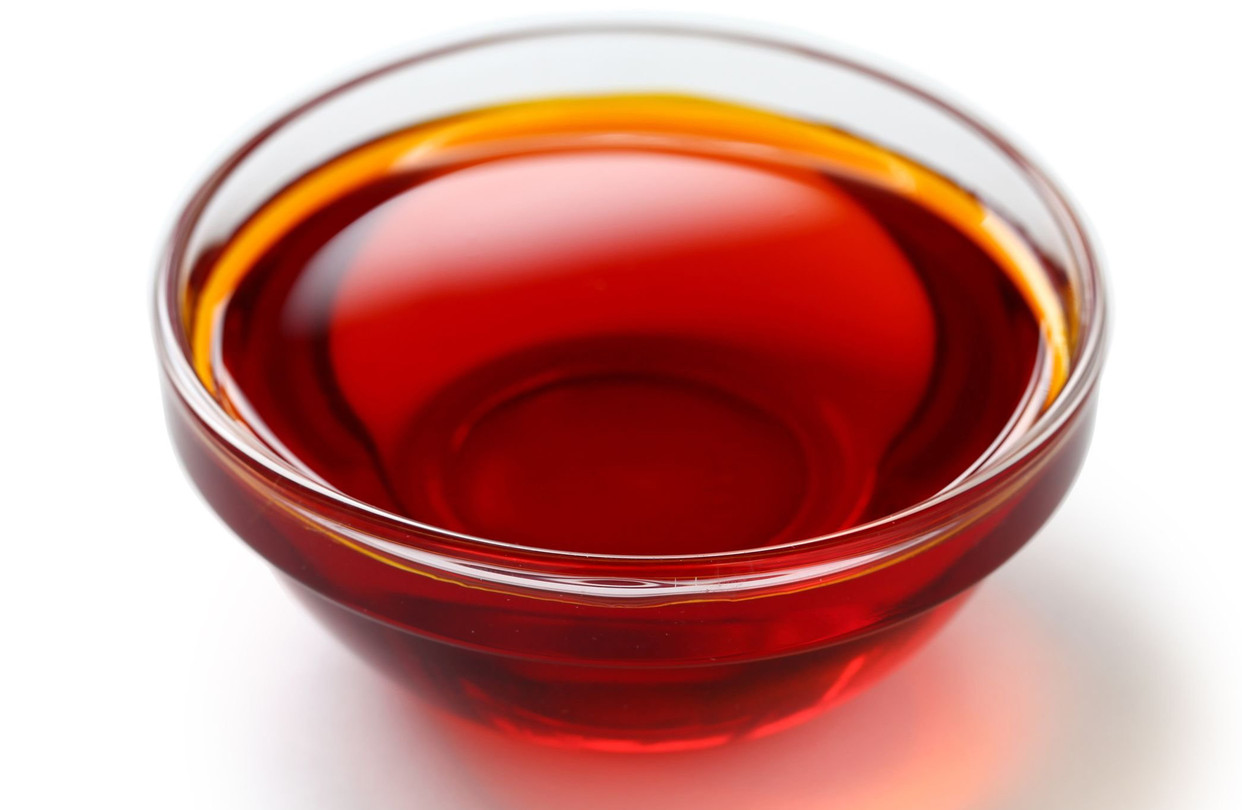
Overview:
Red palm oil is unrefined oil extracted from the fruit of the oil palm tree. It’s known for its vibrant red color, which is due to the high content of carotenoids, particularly beta-carotene.
Health Benefits:
Red palm oil is rich in antioxidants and vitamin E, which support overall health by reducing oxidative stress. It is also an excellent source of vitamin A, which promotes eye health, and it contains a balanced ratio of healthy fats, including monounsaturated and saturated fats.
Best Uses:
Due to its high smoke point, red palm oil is perfect for frying, sautéing, and stews. It’s commonly used in African, Asian, and Caribbean cuisines.
7. Sunflower Oil
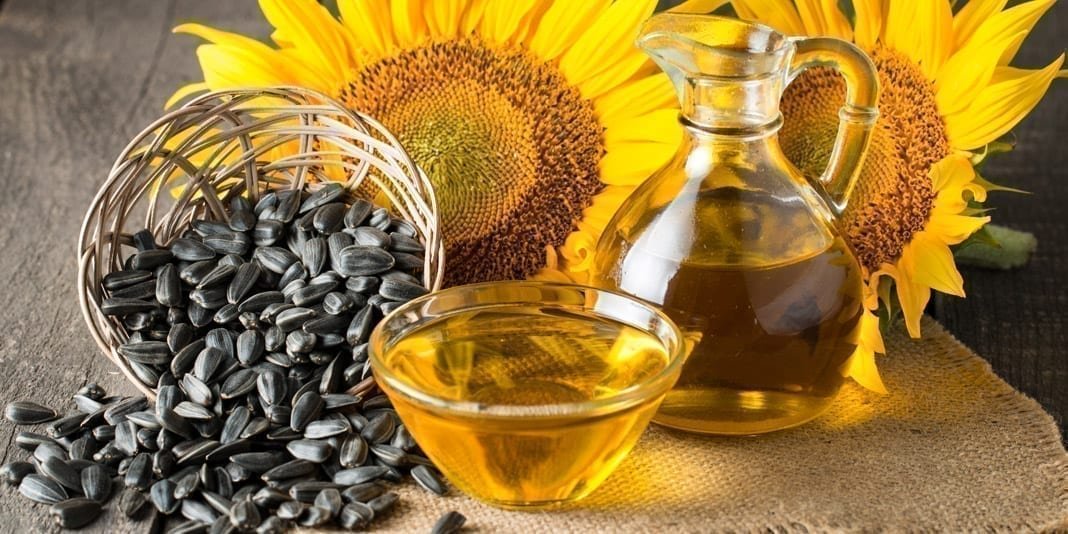
Overview:
Sunflower oil is made from the seeds of sunflowers and is commonly found in most kitchens due to its neutral flavor and affordability. It is high in polyunsaturated fats, particularly omega-6 fatty acids, and vitamin E.
Health Benefits:
Sunflower oil is high in vitamin E, an antioxidant that supports skin health and immune function. While omega-6 fatty acids are essential, it’s important to balance them with omega-3 fatty acids in the diet to prevent inflammation.
Best Uses:
Sunflower oil is suitable for baking, frying, and sautéing, and it is also commonly used in salad dressings and mayonnaise.
8. Sesame Oil
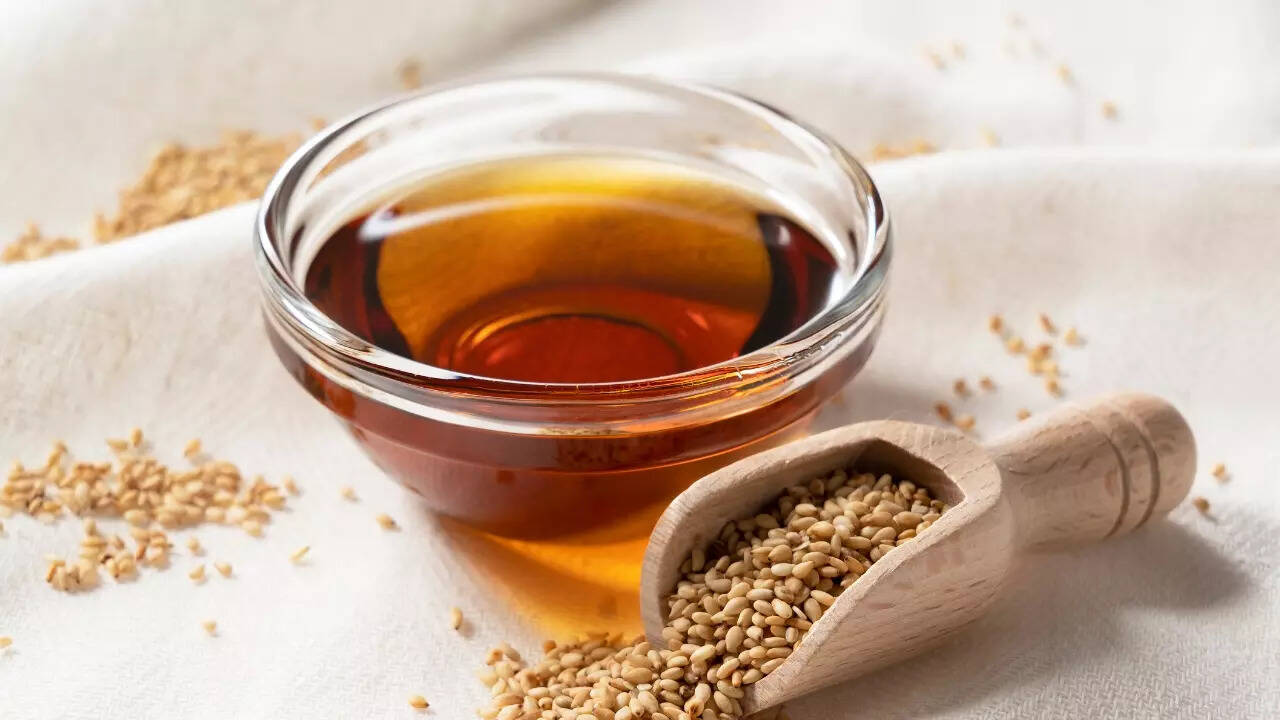
Overview:
Sesame oil is extracted from sesame seeds and is commonly used in Asian and Mediterranean cuisines. It has a rich, nutty flavor and contains a mix of polyunsaturated and monounsaturated fats.
Health Benefits:
Sesame oil contains sesamin, an antioxidant that can lower cholesterol and improve blood sugar control. It also contains lignans, which have anti-inflammatory properties, making it a heart-healthy option.
Best Uses:
Sesame oil is perfect for stir-frying, sautéing, and adding flavor to salads or sauces. The toasted variety adds an extra punch of flavor to dishes.
9. Peanut Oil
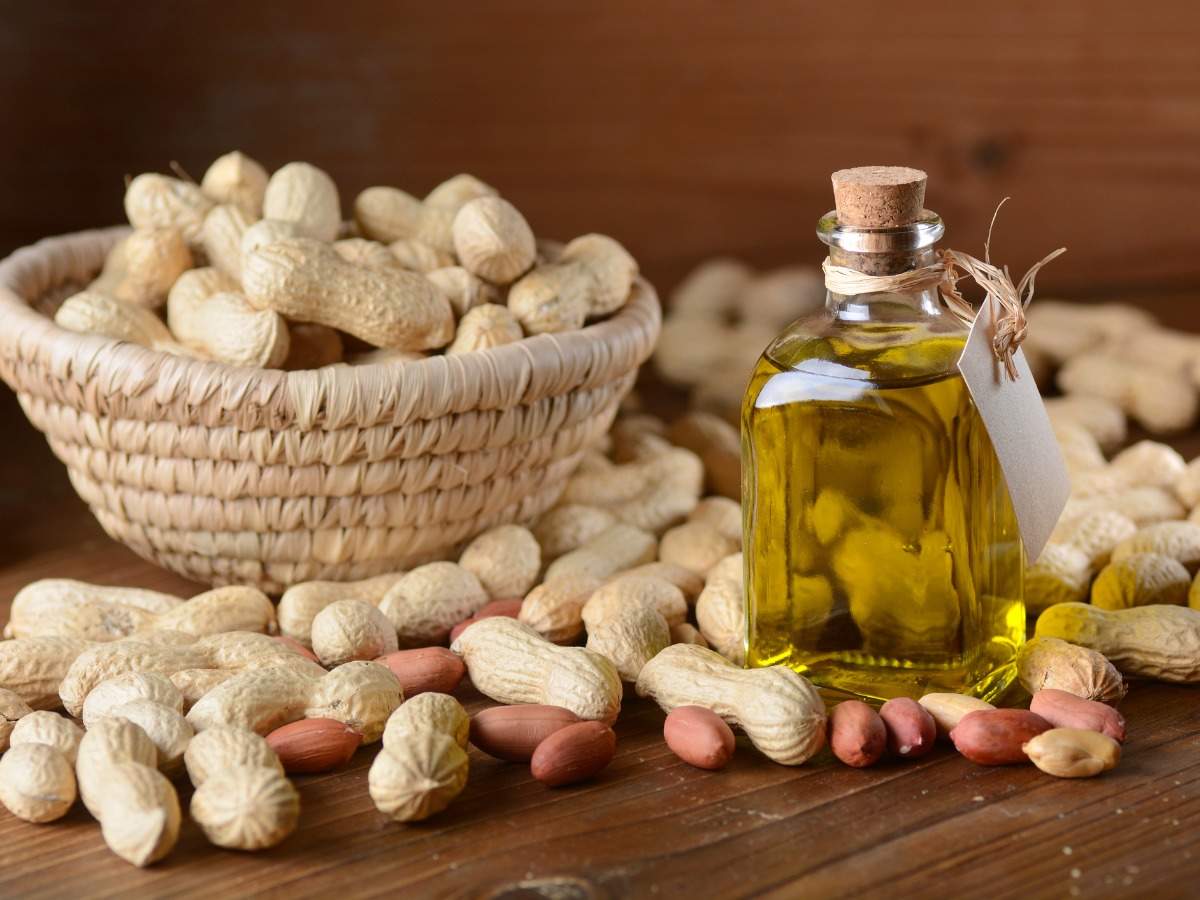
Overview:
Peanut oil is derived from the seeds of peanuts and is known for its mild flavor and high smoke point. It’s rich in both monounsaturated and polyunsaturated fats, making it a good choice for heart health.
Health Benefits:
Peanut oil contains resveratrol, an antioxidant that helps reduce inflammation and promote heart health. It’s also a source of vitamin E, which supports healthy skin and immune function.
Best Uses:
Peanut oil is ideal for deep-frying, sautéing, and stir-frying due to its high smoke point. It’s a common oil used in Asian cuisine and for frying chicken or vegetables.
10. Grapeseed Oil
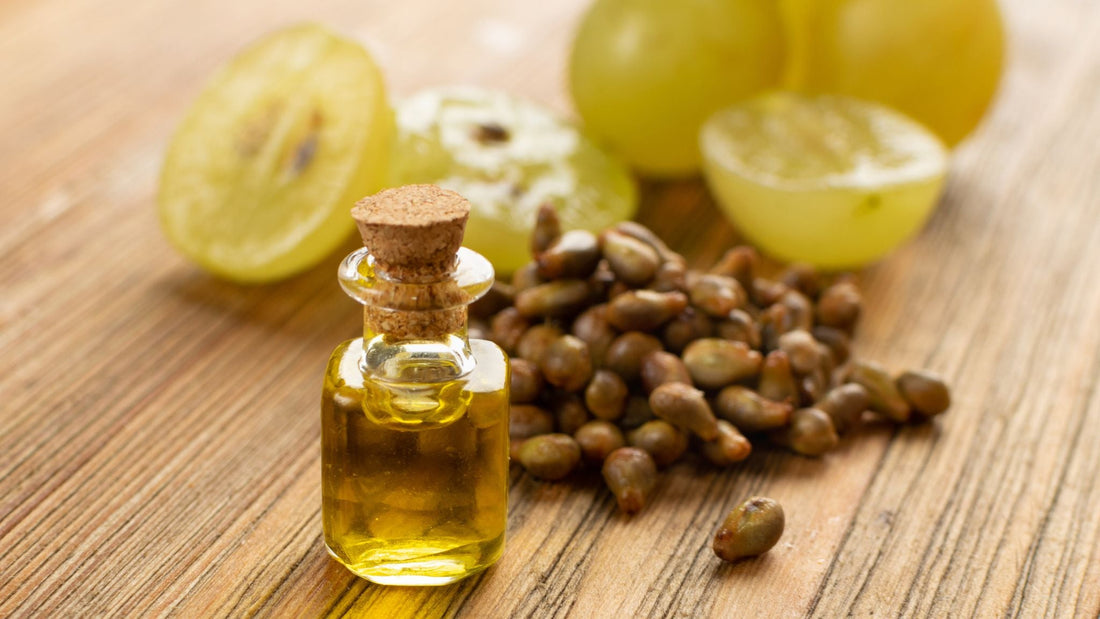
Overview:
Grapeseed oil is extracted from the seeds of grapes, often as a byproduct of wine production. It has a mild flavor and is rich in polyunsaturated fats, particularly omega-6 fatty acids.
Health Benefits:
Grapeseed oil is high in vitamin E and polyphenols, antioxidants that can improve heart health by reducing cholesterol levels and promoting better circulation. It may also support healthy skin by reducing oxidative stress.
Best Uses:
Grapeseed oil is ideal for sautéing, frying, and baking. It’s also commonly used for salad dressings and as a base for marinades.
11. Vegetable Oil

Overview:
Vegetable oil is a blend of different oils, typically including soybean, corn, or sunflower oils. It’s a neutral-flavored oil that is widely available and affordable.
Health Benefits:
The health benefits of vegetable oil depend on its composition. While it is generally lower in saturated fat than butter, it can be high in omega-6 fatty acids. Overconsumption of omega-6s, without a balance of omega-3s, may lead to inflammation in the body.
Best Uses:
Vegetable oil is a versatile option for frying, baking, sautéing, and making dressings. It’s a popular choice in many home kitchens due to its mild flavor and affordability.
FAQs
-
What is the healthiest cooking oil?
The healthiest cooking oil is olive oil, especially extra virgin olive oil, due to its high content of heart-healthy monounsaturated fats and antioxidants. -
Can I use olive oil for frying?
Yes, olive oil can be used for frying, but it’s best for low to medium-heat cooking. For high-heat frying, oils with higher smoke points like avocado oil or canola oil are better options. -
Which oil is best for deep frying?
Oils with high smoke points, such as peanut oil, avocado oil, and sunflower oil, are ideal for deep frying. -
Is coconut oil healthy for cooking?
Coconut oil contains saturated fats but is considered healthy in moderation. It’s rich in medium-chain triglycerides (MCTs), which may help with metabolism and energy levels. -
What is the smoke point of cooking oils?
The smoke point is the temperature at which an oil starts to break down and release harmful compounds. It’s important to choose an oil with a high smoke point for high-heat cooking. -
Which oil is best for heart health?
Olive oil is considered one of the best oils for heart health due to its high monounsaturated fat content and antioxidants. Avocado oil is also a good option. -
Is ghee better than butter?
Ghee is considered healthier than butter because it’s lactose-free and has a higher smoke point, making it better for high-heat cooking. -
Can I reuse cooking oil?
Reusing cooking oil is not recommended as it can break down and form harmful compounds. It’s best to use fresh oil for each cooking session. -
What’s the difference between olive oil and avocado oil?
Both are heart-healthy oils high in monounsaturated fats, but avocado oil has a higher smoke point, making it more suitable for high-heat cooking. -
What is the shelf life of cooking oils?
The shelf life of cooking oils varies depending on the type. Most oils last around 6 months to a year when stored in a cool, dark place. However, oils like olive oil may go rancid faster.
Conclusion
Choosing the right cooking oil can significantly impact both your health and the flavor of your dishes. While there is no one-size-fits-all solution, understanding the health benefits, smoke points, and culinary uses of each oil will help you make the best choice for your cooking needs. Whether you’re frying, baking, or sautéing, the oils listed here offer a variety of health benefits to help you create delicious and nutritious meals


![10 Best Whisky in India [year]: The Ultimate Guide to India's Finest 10 Best Whisky in India](https://eleven-best.com/wp-content/uploads/2024/12/10-Best-Whisky-in-India.jpg)
![10 Best Filter Coffee Powder in India [year]: A Coffee Lover’s Ultimate Guide! 10 Best Filter Coffee Powder in India](https://eleven-best.com/wp-content/uploads/2025/02/4a1.jpg)
![10 Best Non-Veg Restaurants in Mumbai [year] 10 Best Non-Veg Restaurants in Mumbai](https://eleven-best.com/wp-content/uploads/2025/05/Best-Non-Veg-Restaurants-in-Varanasi-1000x565-1.png)